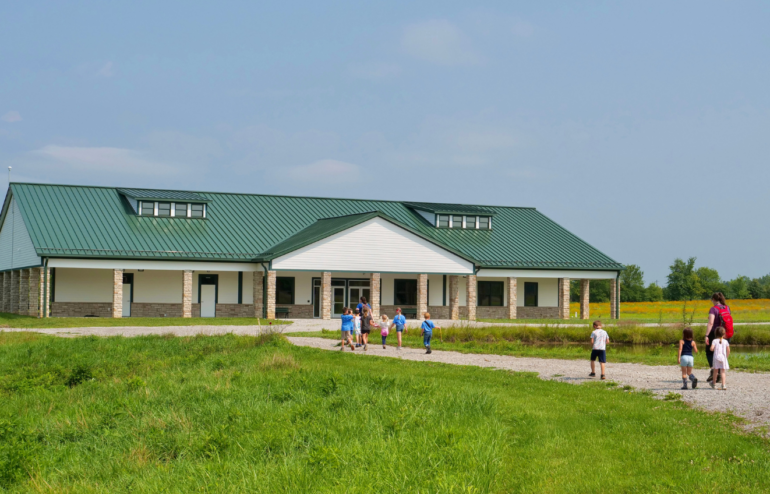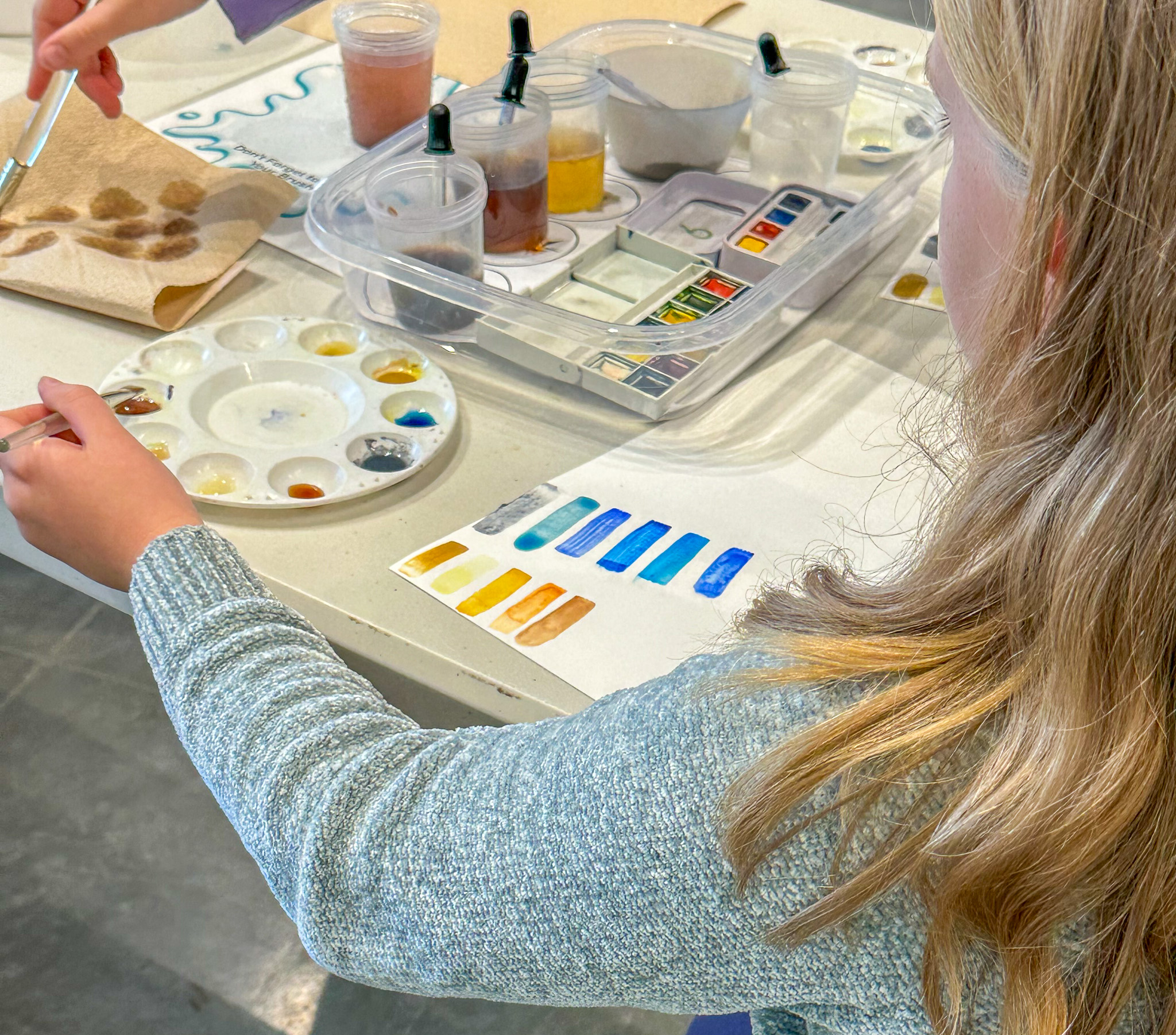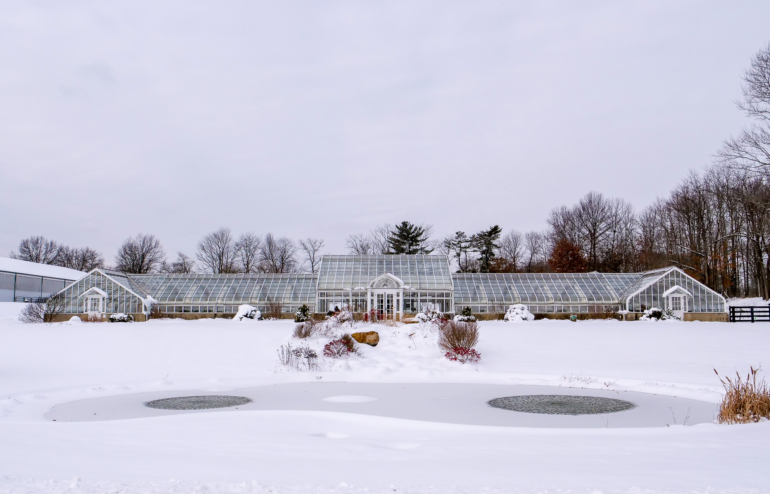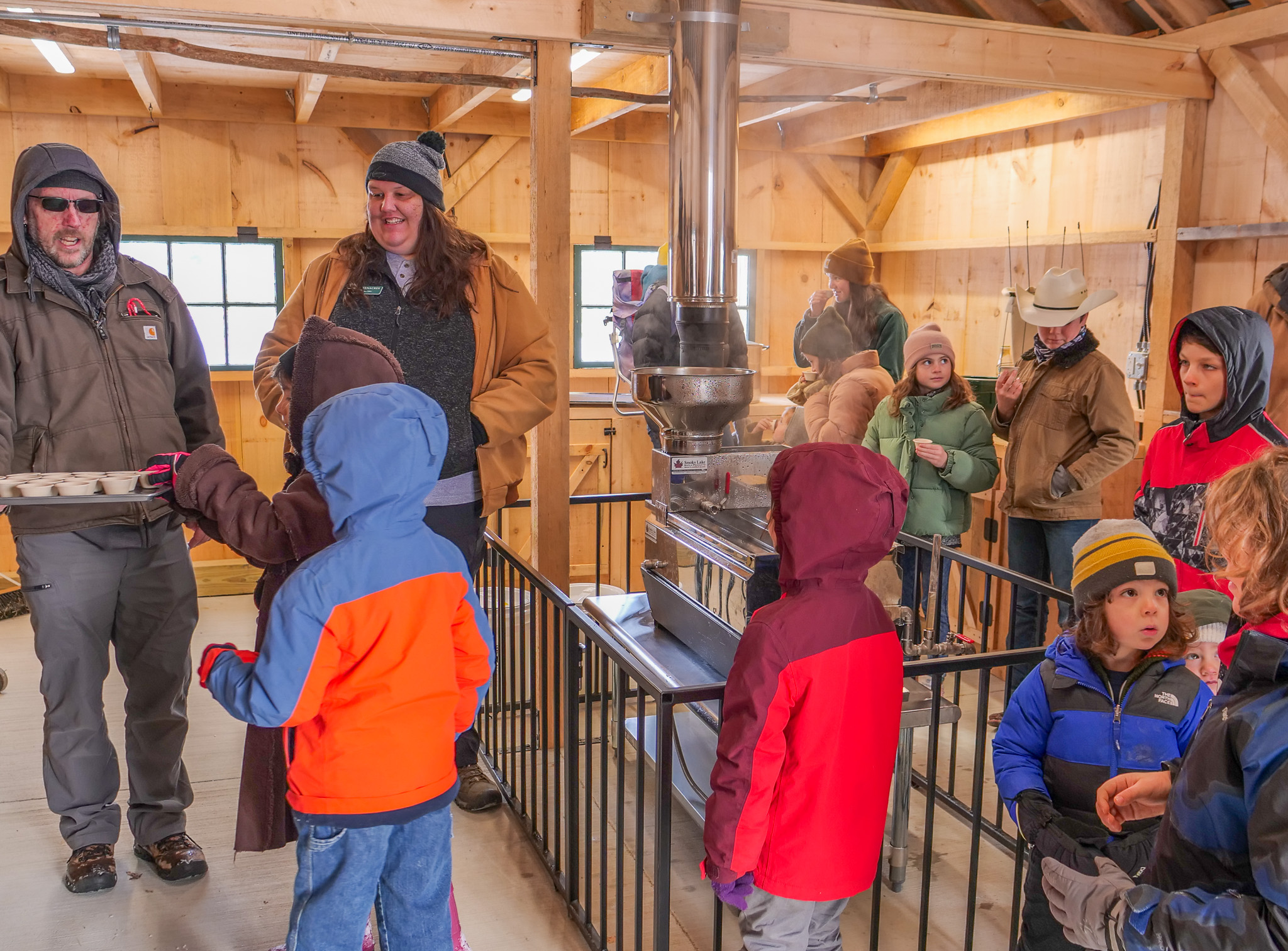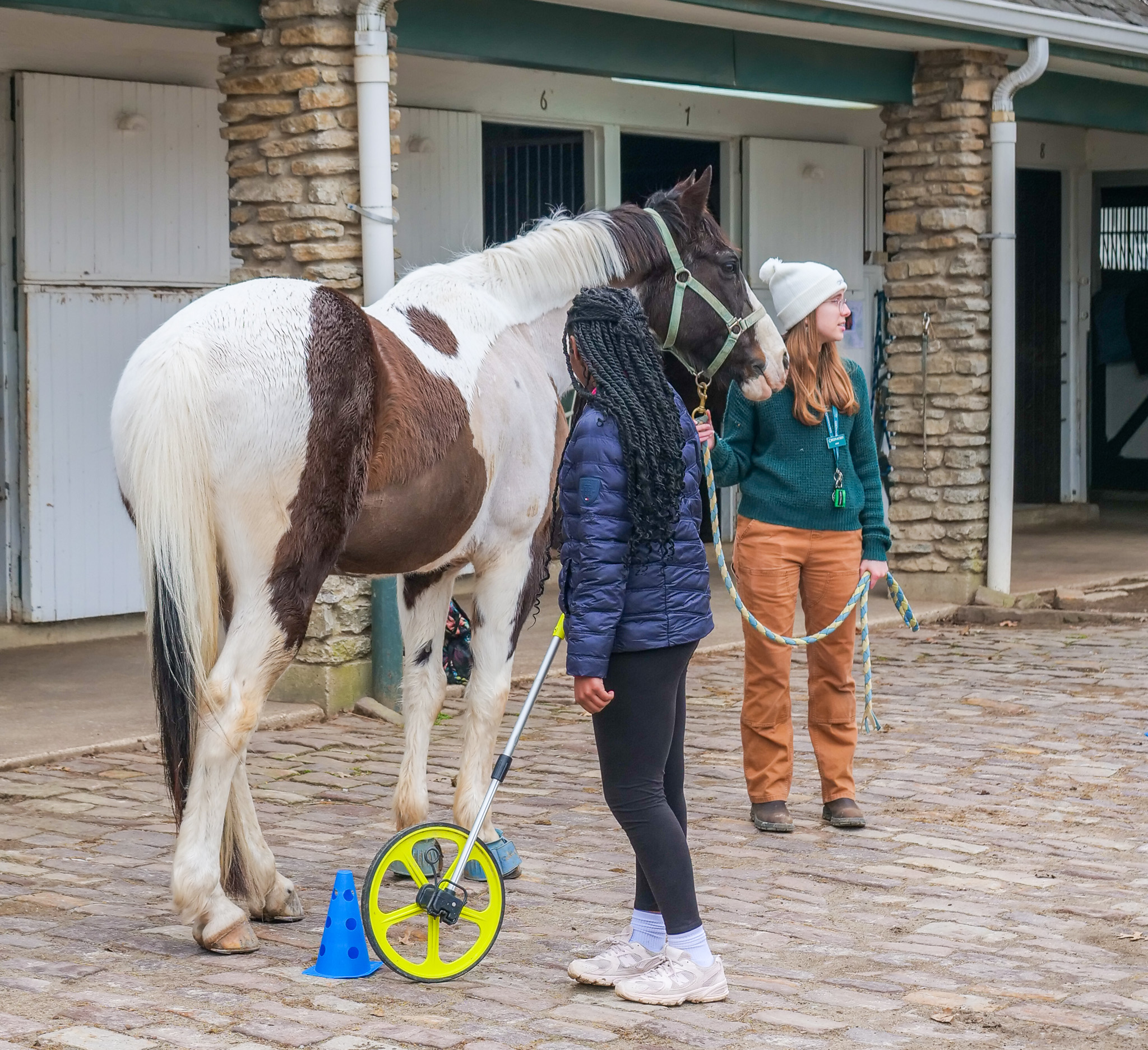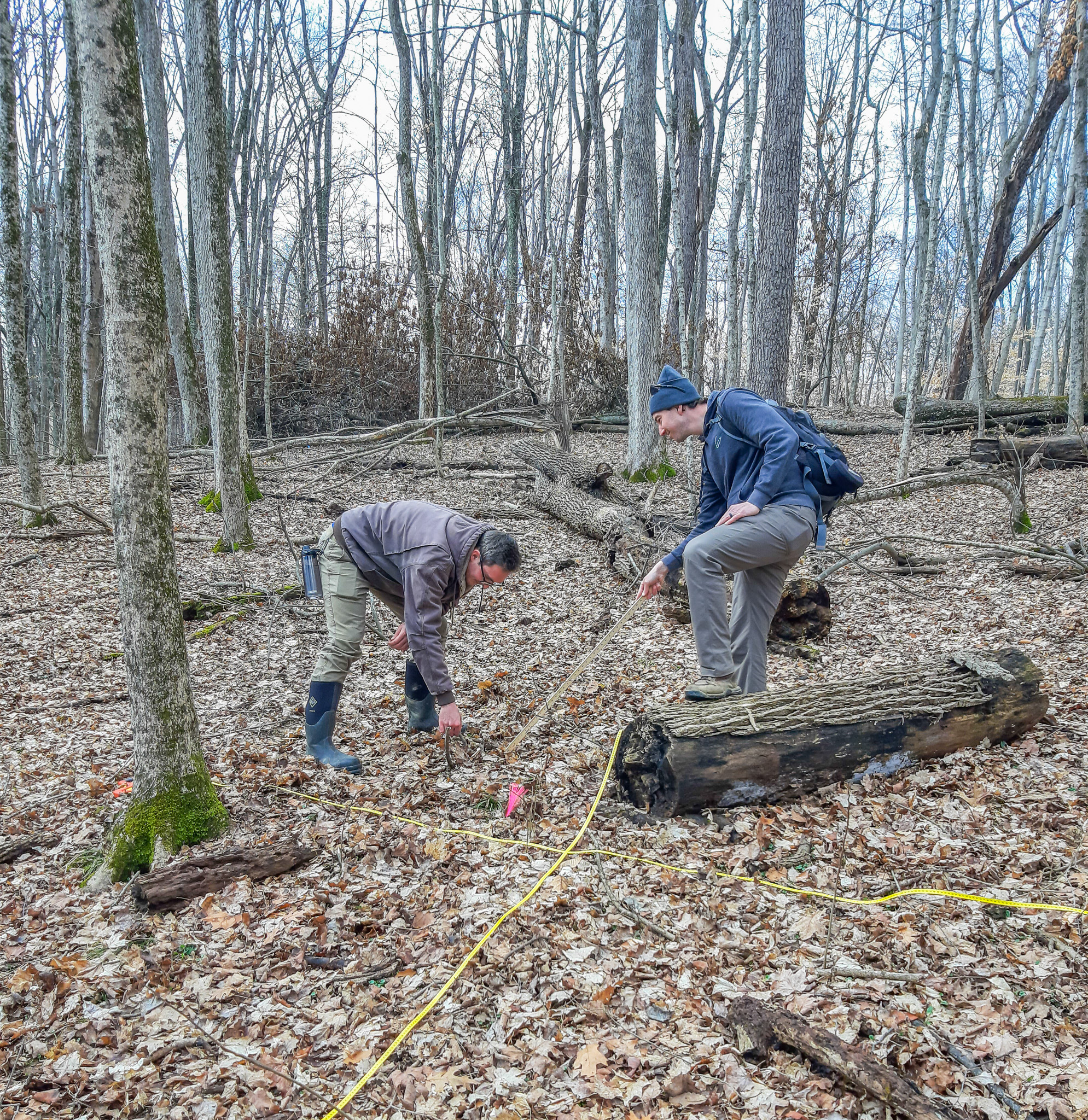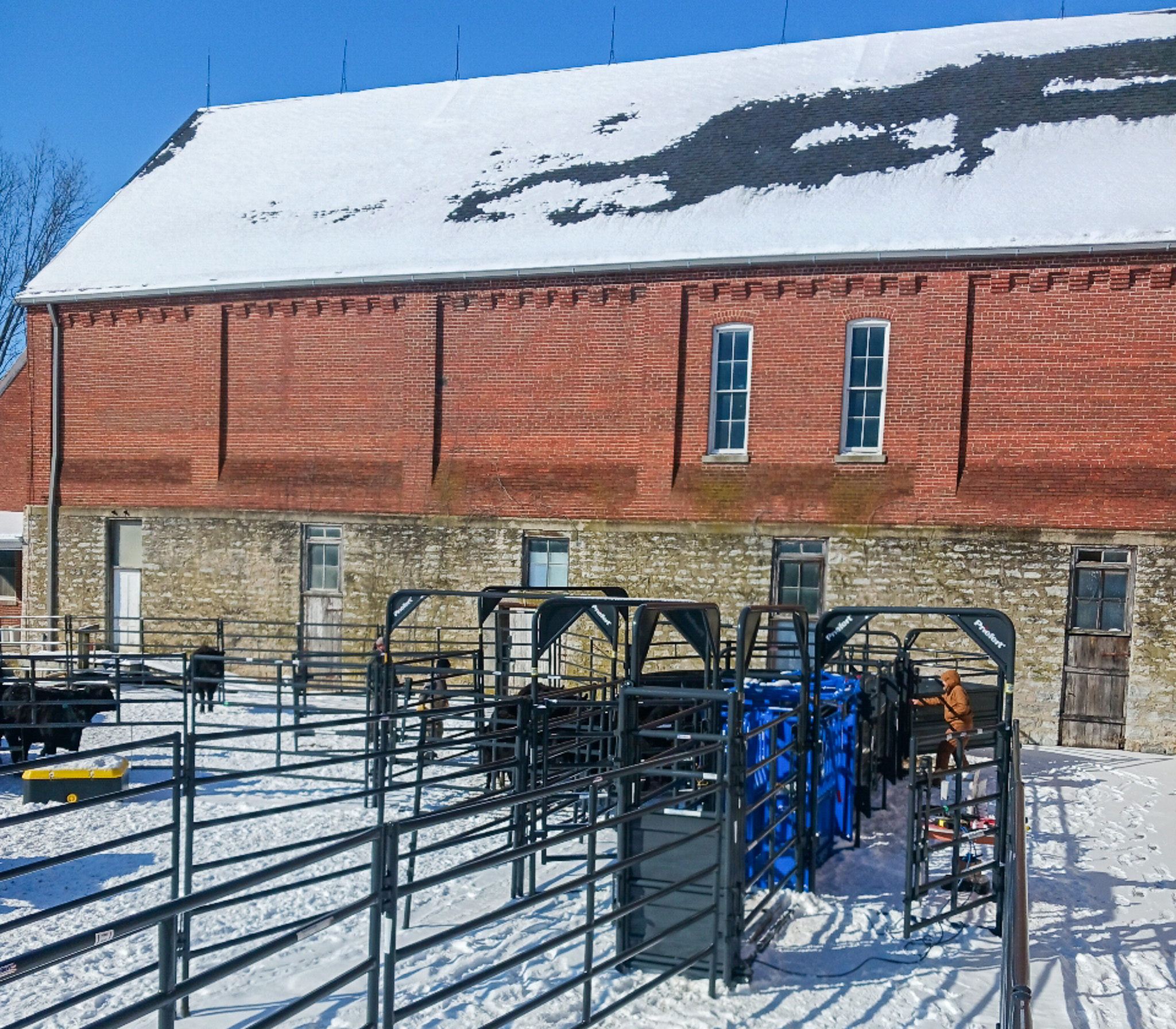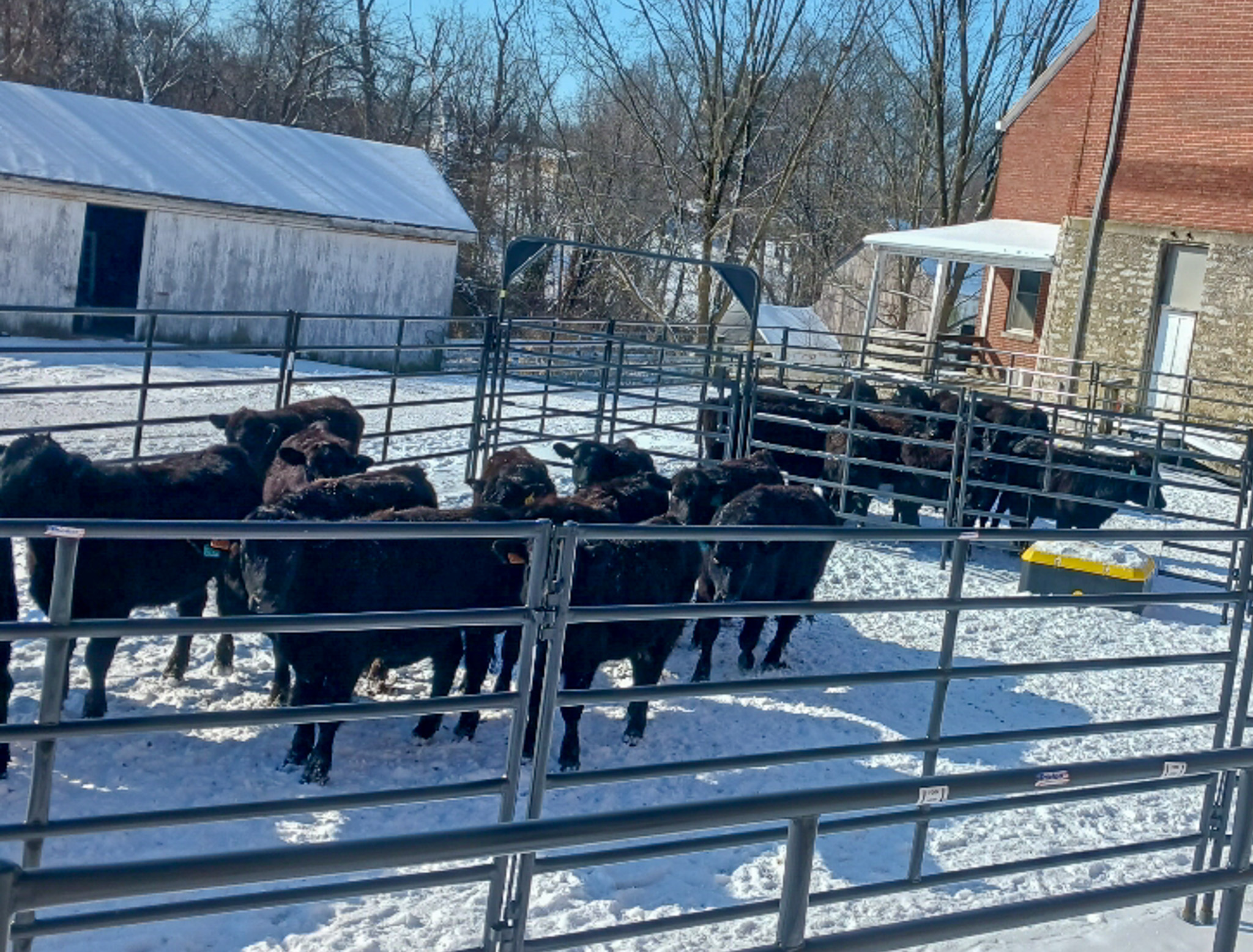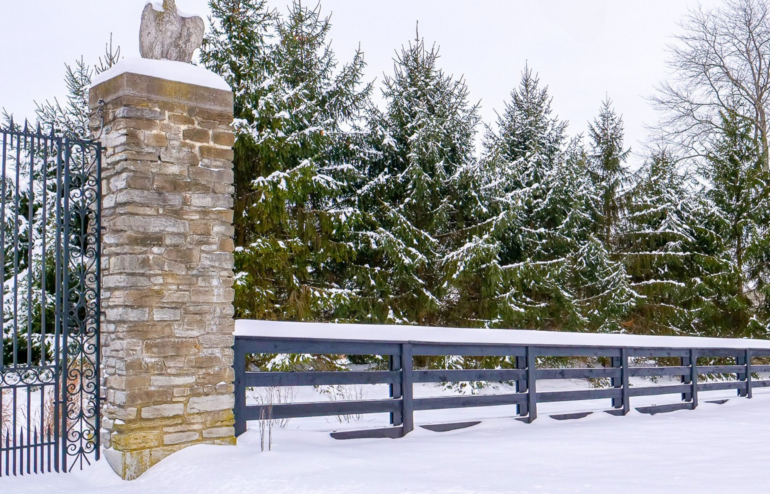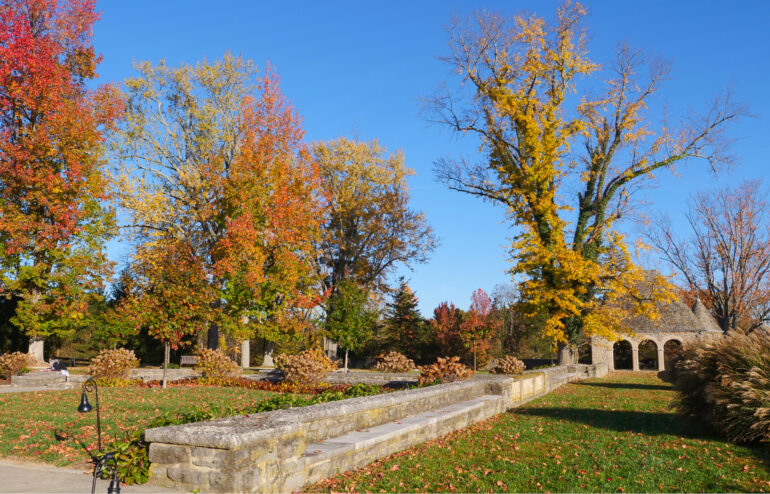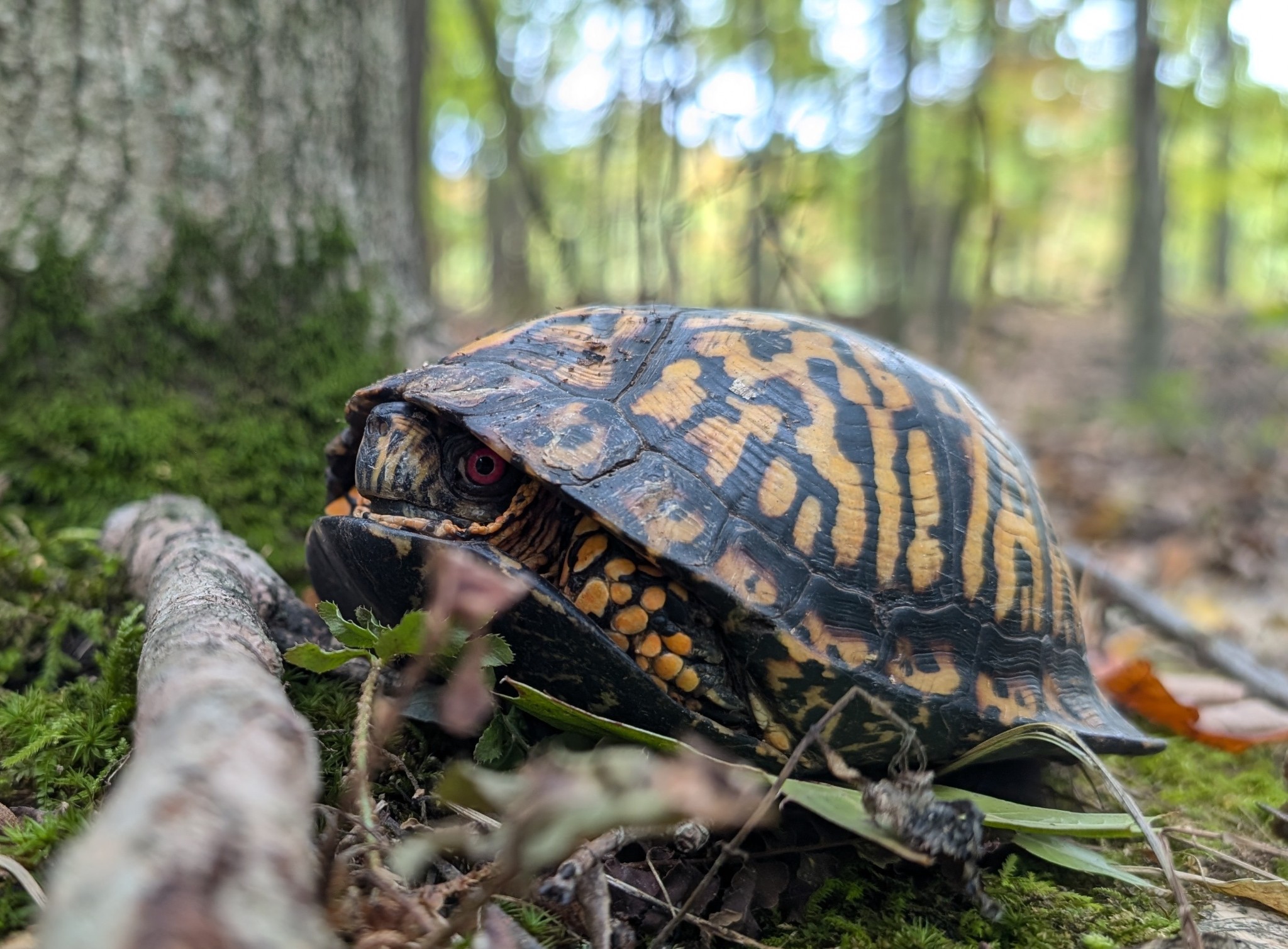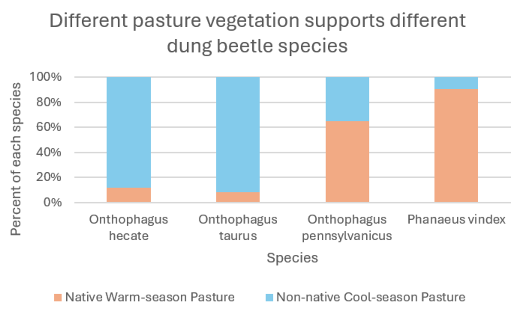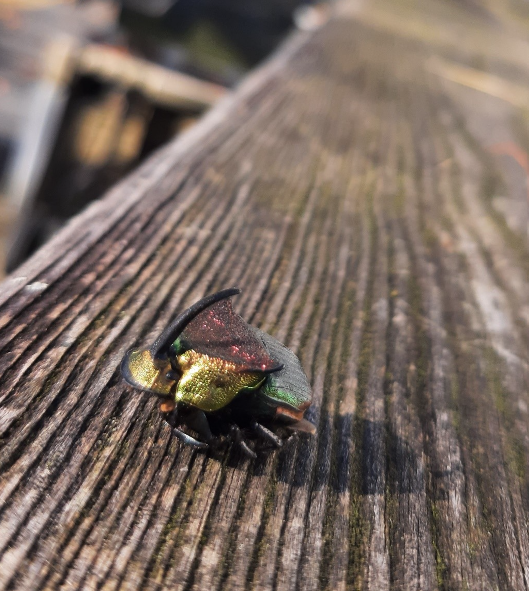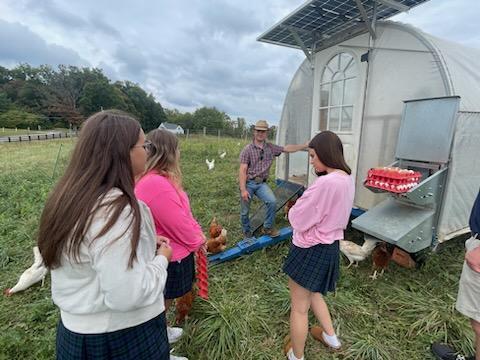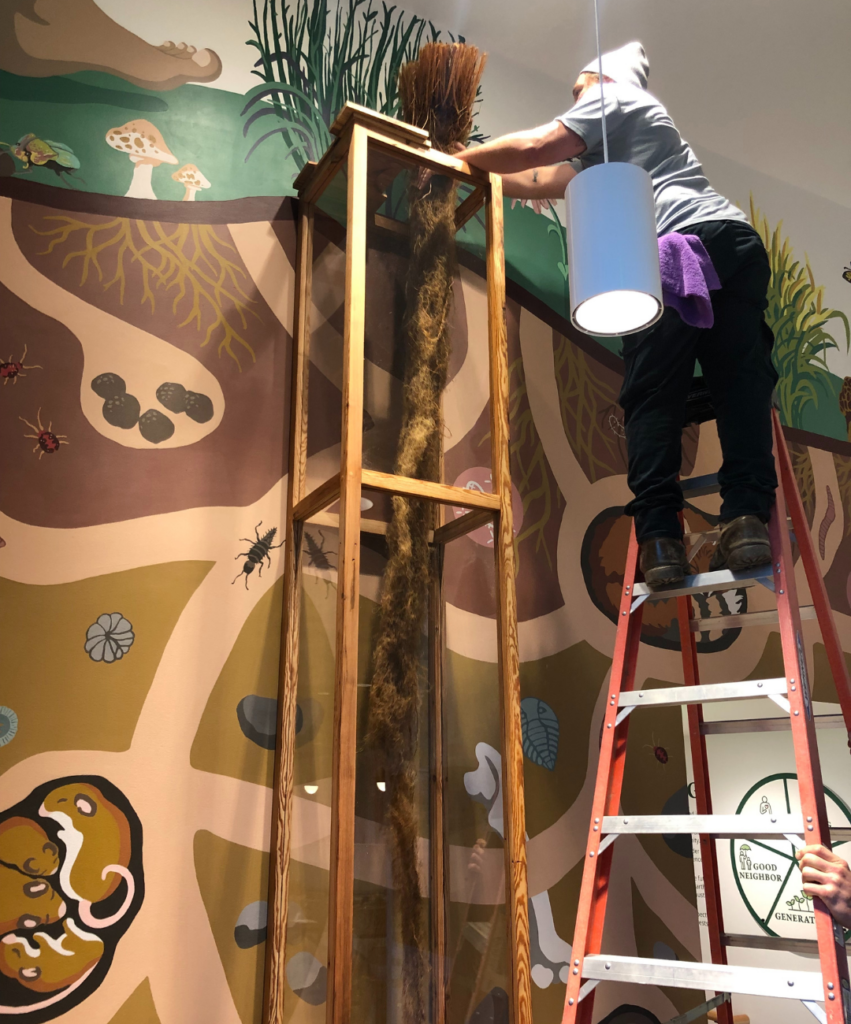
Flourishing Arts & Environment Education at Greenacres Lewis Township
Greenacres Lewis Township is growing! We’re on track to welcome over 2,800 learners in 2025, marking a significant milestone in our mission to provide high-quality environment and arts education to the community. Through new school and community partnerships, expanded programming, and enhanced arts initiatives, we’re creating meaningful learning experiences that engage students and support educators.
New Programs: The Arts Take Center Stage
This year, we introduced Arts-only as well as hybrid Environment Education + Arts programs, thoughtfully designed to meet Ohio State Standards across Fine Arts, Science, Social Studies, and Social-Emotional Learning. These programs offer students hands-on, immersive arts experiences that encourage creativity and a deeper connection to the world around them.
Our Arts Education team, based at our Cincinnati campus, has been instrumental in shaping these programs. Sophie Kussman, a dedicated Arts Educator, has led the expansion, bringing her passion for visual and performing arts to Lewis Township. Programs like Art for the Heart—which blends art, music, and mindful movement—are already making an impact, supporting students’ emotional well-being and artistic expression.
Expanding Access: More Schools, More Learners
We are excited to welcome an increasing number of schools and organizations to Greenacres Lewis Township, providing more students with the opportunity to experience hands-on, outdoor learning in a meaningful way. Schools from Brown, Clermont, Adams, and Clinton counties continue to join us for field trips, summer camps, and special programs, with even more schools already scheduled for the upcoming year. As we grow, so do the opportunities for students to connect with nature and the arts, engage in meaningful learning experiences, and explore the world around them.
Growing Partnerships, Expanding Opportunities at Greenacres Lewis Township
At Greenacres Lewis Township, we are proud to welcome more schools, homeschool groups, and young leaders into our growing community of learners. Our commitment to hands-on, immersive education continues to resonate with educators, students, and families alike.
✅ New & Returning School Partnerships
Our reach is expanding, with both returning schools and new partnerships joining us for unforgettable nature-based and arts-integrated learning experiences:
-
-
- Felicity K-8 has committed to the 2025-2026 school year, with most grades visiting twice for even more in-depth learning.
-
-
-
- Hill Intermediate (Bethel-Tate District) has made our 4th-grade fossil program a tradition since 2019—a testament to the lasting impact of our field trips.
-
-
-
- Mt. Orab Elementary & Middle sent multiple grades this year, with exciting plans to expand their participation.
-
-
-
- St. Michael School in Ripley joined us for the first time and is already planning to bring students from K-8 next year—a growing partnership we’re thrilled to cultivate.
-
✅ Growing Interest in Homeschool Programs
Due to increased demand, we’ve added a second homeschool group to our field trip roster, ensuring more families have access to engaging, nature-based education in a dynamic, hands-on setting.
✅ Leaders in Training (LITs) – A New Summer Opportunity for Teens
We’re excited to introduce our Leaders in Training (LITs) program, offering volunteer leadership opportunities for 14-17-year-olds at our summer camps. This initiative provides teens with the chance to develop leadership skills, gain hands-on experience working with younger campers, and build confidence in an outdoor learning environment. Learn more and apply today: Leaders in Training Program
As our Lewis Township Education Center continues to grow, we invite even more schools and students to join us. With a capacity of 5,500 learners in 2025, there’s still room for your class to explore, learn, and connect with nature and the arts. Schedule a field trip today!

STEAM Partnerships: Strengthening Our Community
Greenacres continues to collaborate with Brown County ESC to support local educators and students through STEAM (Strategies To Engage All Minds) initiatives. This year, we plan to participate in:
-
-
- Little State STEAM, an exposure event for middle schoolers.
- STEAMology, a two-week summer professional development opportunity for teachers.
-
Our presence at community events has also expanded, including participation at Georgetown Elementary, Ripley-Union-Lewis-Huntington Elementary, Eastern High School, and Hamersville Elementary-Middle School. We’re committed to enriching education in our community and providing teachers with valuable resources and experiences.
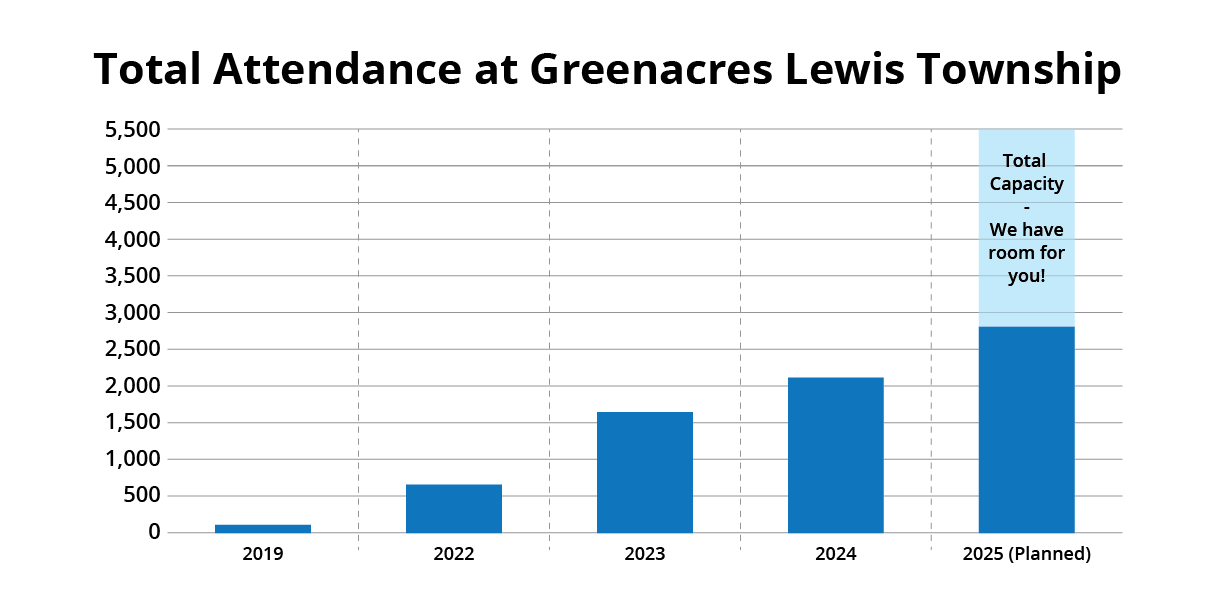
Why Educators Love Greenacres
Teachers and administrators continue to choose Greenacres for field trips because of our engaging programs, alignment with classroom curriculum, and accessibility. Here’s what they’re saying:
-
-
- “Being in Brown County, attending field trips in Cincinnati can be a challenge due to time restraints. Having the Lewis Township location makes the bus ride much shorter. I also enjoy that our school is the only school there! The students received lots of small group attention. The trip was well-organized, and the staff was very knowledgeable. Financially, this trip is wonderful, too—we did not have to worry about any students who couldn’t pay a fee to attend. Thank you for providing this great experience close to us!”
— Mt. Orab Elementary School
- “Being in Brown County, attending field trips in Cincinnati can be a challenge due to time restraints. Having the Lewis Township location makes the bus ride much shorter. I also enjoy that our school is the only school there! The students received lots of small group attention. The trip was well-organized, and the staff was very knowledgeable. Financially, this trip is wonderful, too—we did not have to worry about any students who couldn’t pay a fee to attend. Thank you for providing this great experience close to us!”
-
-
-
- “We came because we were looking for a new field trip experience. Many of our students are low-income, so the fact that they did not have to pay an entrance fee was appealing. Also, we were so thankful to receive a grant that covered our bussing. I was referred by a parent who attended a field trip as a chaperone last school year. We will definitely be returning next school year!”
— Mt. Orab Elementary School
- “We came because we were looking for a new field trip experience. Many of our students are low-income, so the fact that they did not have to pay an entrance fee was appealing. Also, we were so thankful to receive a grant that covered our bussing. I was referred by a parent who attended a field trip as a chaperone last school year. We will definitely be returning next school year!”
-
-
-
- “We love Greenacres across the board. I love that I can find excellent enrichment content so close to the school and that we can detail our goals/objectives for the trip, and the Greenacres team delivers.”
— Western Brown – Hamersville School
- “We love Greenacres across the board. I love that I can find excellent enrichment content so close to the school and that we can detail our goals/objectives for the trip, and the Greenacres team delivers.”
-
-
-
- “Greenacres is close to our school, is free, provides the standards we are covering, and offers an amazing topic to interest kids in learning (maple syrup).”
— Georgetown Elementary School
- “Greenacres is close to our school, is free, provides the standards we are covering, and offers an amazing topic to interest kids in learning (maple syrup).”
-
-
-
- “It was local and affordable for our school, making the field trip possible. Many students don’t get outdoors and get to see a lot of things in nature!”
— Western Brown Local School
- “It was local and affordable for our school, making the field trip possible. Many students don’t get outdoors and get to see a lot of things in nature!”
-
-
-
- “We bring our students to Greenacres to get the outside learning experience, hands-on activities, and multiple ways of learning.”
— Western Brown Gifted Trip 1
- “We bring our students to Greenacres to get the outside learning experience, hands-on activities, and multiple ways of learning.”
-
Join Us—There’s Room for More!
As we continue to grow, we’re excited to welcome even more schools, students, and community members to Greenacres Lewis Township. Whether you’re looking for a field trip that supports your curriculum, a summer camp that immerses campers in nature and the arts, or professional development opportunities for educators, we have something for you!
📅 Now registering for summer camp and the 2025-2026 school year!
📍 Want to schedule a field trip? We have space available! Sign up today and bring your students for an unforgettable hands-on learning experience.

